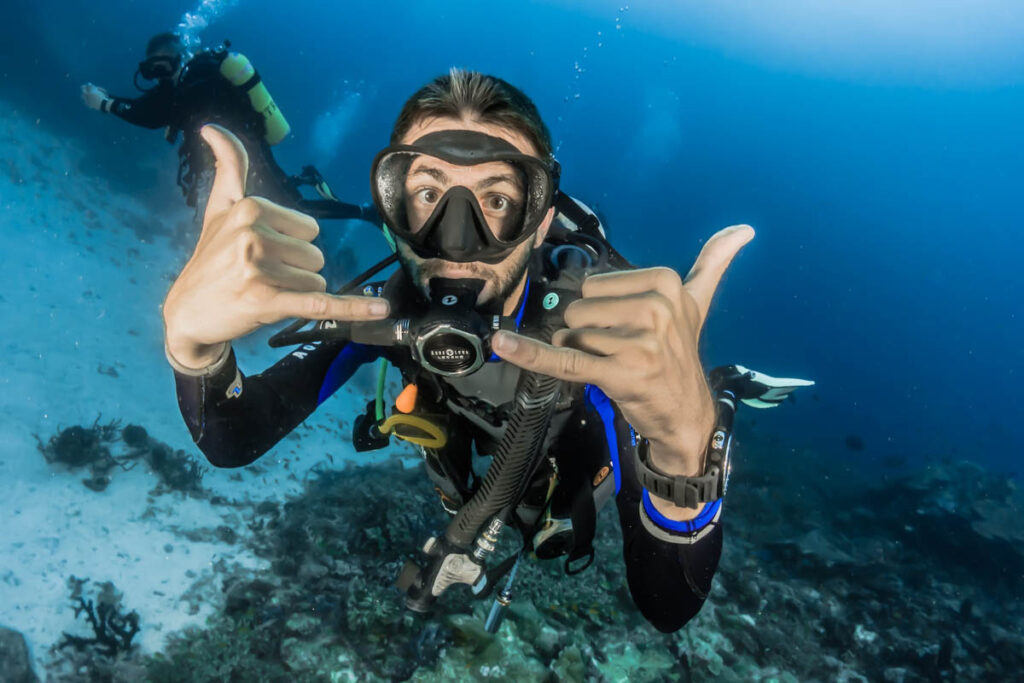Many scuba instructors proudly claim, “I teach the right way!” They take great confidence in their ability to provide the best diver education, often believing that their methods are superior to those of others. This confidence, while valuable, can sometimes lead to an unfortunate side effect: a tendency to criticize other instructors—especially those certified by different agencies—often in front of their students. Such behavior undermines not only the credibility of others but also the professionalism of the scuba industry.
While self-confidence is an important trait for any instructor, overconfidence can create blind spots. It prevents some instructors from acknowledging that they, too, have areas for improvement. Rather than recognizing and learning from the strengths of others, these instructors focus solely on perceived weaknesses, reinforcing a belief that their way is the only correct way. This mindset stunts personal and professional growth, leading to stagnation—or worse, decline—in their teaching quality and business success.
Let us face facts: no instructor is perfect. We all have room to grow. An instructor who cannot look beyond their own perceived superiority and appreciate the skills of others is not only doing a disservice to themselves but also to their students and the diving industry. The unwillingness to learn and adapt will lead to mediocrity or even obsolescence. On the other hand, those who embrace a mindset of continuous improvement—learning from peers and adapting their methods—position themselves for success and longevity in the field.
Collaboration Over Criticism
A skilled instructor recognizes that they can gain as much from observing others as they can from their own experience. Rather than criticizing colleagues, especially in front of students, a good instructor focuses on identifying positive traits in others and incorporating those strengths into their own practice. This collaborative approach fosters a culture of mutual respect and improvement within the diving community.
For instance, an experienced instructor observing a newer colleague might notice their ability to create a relaxed, fun atmosphere for students. Instead of dismissing their lack of technical precision as a failure, the experienced instructor could integrate that same ease and positivity into their own teaching while offering constructive feedback to help the newer instructor refine their technical skills. This exchange benefits both instructors and their students.
The Power of Positivity
Criticism, especially when framed negatively, rarely achieves the desired outcome. It puts the recipient on the defensive, making them less likely to absorb and apply the feedback. Instead, offering guidance through a lens of encouragement is far more effective. Highlighting what someone is doing right before suggesting areas for improvement creates a supportive environment where growth can flourish.
For example, rather than saying, “You’re not teaching buoyancy control correctly,” an instructor might say, “I noticed your students seemed really engaged during the buoyancy exercise. Have you tried incorporating [specific technique] to enhance their control even further?” This approach not only makes the feedback more palatable but also encourages the instructor to see the feedback as an opportunity rather than a critique.
A Professional Standard
If scuba instructors want to be regarded as professionals, they must first conduct themselves professionally. This means avoiding behaviors that degrade the reputation of others and, by extension, the industry. Publicly criticizing colleagues, especially in front of students, reflects poorly on the instructor making the remarks. It signals insecurity and a lack of professionalism, traits that can quickly erode trust and credibility.
Instead, instructors should strive to elevate the industry by supporting one another. When instructors work together to improve their collective skills, the entire diving community benefits. Students receive higher-quality training, instructors build better reputations, and the industry gains greater respect from the public.
A Shift in Mindset
The diving industry needs a cultural shift—one that moves away from competition and toward collaboration. Instructors must recognize that helping others succeed does not diminish their own success; it amplifies it. A rising tide lifts all boats, and when instructors focus on building each other up, the entire profession thrives.
For this shift to happen, instructors need to adopt a growth mindset. Rather than seeing the success of others as a threat, they should view it as an opportunity to gain experience. Every instructor, regardless of experience or agency affiliation, has something valuable to offer. By observing, collaborating, and sharing knowledge, instructors can create a stronger, more united diving community.
Lead by Example
The most effective way to inspire change is to lead by example. Instructors who model professionalism, collaboration, and a commitment to continuous improvement set the standard for others to follow. They demonstrate that true expertise lies not in claiming superiority but in a willingness to learn, adapt, and grow.
The next time you find yourself tempted to criticize a colleague, pause, and ask yourself: what can I learn from this person? What strengths do they have that I could integrate into my own teaching? How can I offer guidance in a way that uplifts rather than tears down? By asking these questions and acting on the answers, you not only improve your own skills but also contribute to a more positive, professional, and successful scuba industry.






